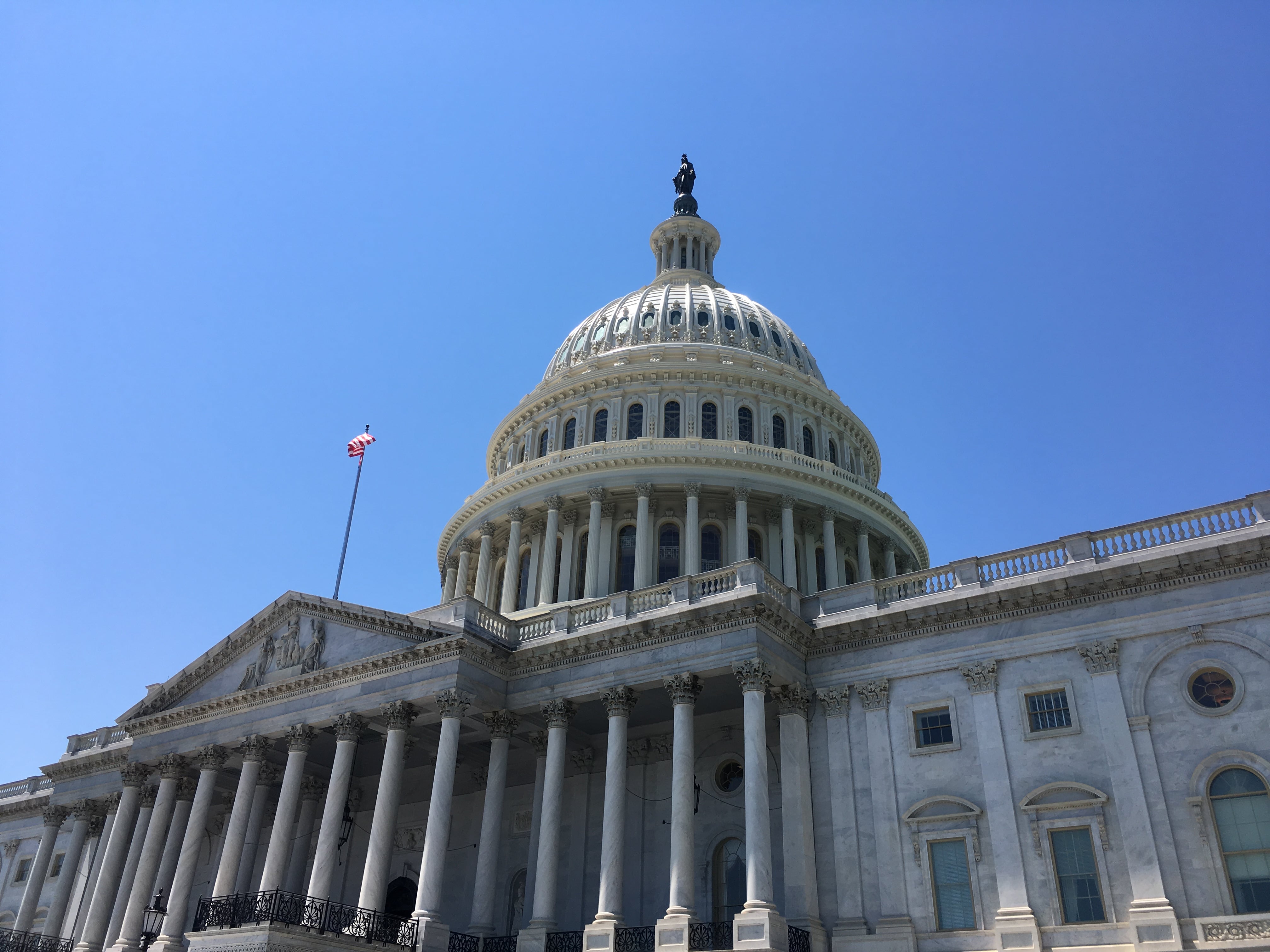WASHINGTON ― Senate Republican plans to quickly pass spending bills over the next few weeks now appear at risk, amidst a push from Democrats to rebuke President Donald Trump’s diversion of military construction funding to the border wall with Mexico.
A $695 billion defense spending bill advanced Tuesday in the Senate Appropriations Committee, but the panel’s top Democrat, Sen. Patrick Leahy of Vermont, warned it would not pass easily. He said he would propose amendments to the defense bill that would undo the president’s actions on the wall and limit his flexibility to transfer and reprogram money.
The bill emerged as the center of partisan rancor over efforts to fund the government and avoid a shutdown when spending runs out on Oct. 1. Senate Republicans had planned a sprint to get 12 spending bills needed before the end of the fiscal year, but that now appears to be in danger of unraveling.
The full Senate Appropriations Committee is still expected to take up its defense spending bill on Thursday. It includes $622.4 billion in base funding, $70.7 billion in wartime spending, and $1.7 billion for storm damaged military bases, according to a bill summary.
Industry might note the inclusion of 96 Lockheed Martin F-35 Lightning II aircraft, eight Boeing F-15EX aircraft, and $1.7 billion for General Dynamics M-1 tanks. The bill also provides $24.4 billion for 14 battle force ships; including two Virginia Class submarines and three DDG-51 Arleigh Burke destroyers.
Days after the Pentagon released the list of 127 projects deferred by the administration to devote $3.6 billion to the border wall, Leahy used a floor speech to demand Republicans defend local projects like military schoolhouses and fire stations, if not Congress’s power of the purse. Trump was attempting an “end-run” after Congress cut his wall request by $4.2 billion, he said.
“So far, the abuses of authority have been used in ways that mostly impact issues Democrats care about, and Republicans have stood silent,” Leahy said. “But what happens when this administration crosses a Republican red line? What about members from states impacted by the canceled military construction projects? Will they at least stand up for their states, if they won’t stand up for the Congress, or the Constitution?”
At least one key Republicans was open to the conversation. Military Construction and Veterans Affairs Subcommittee Chairman John Boozman of Arkansas said that the law authorized the administration to divert the money, but he and other Republicans would hear out proposals to protect Congress’s appropriating authority.
“I think it’s legitimate to take a look and say ‘do we want to make it where it’s not as broad, to tightening that authority up,’” Boozman said. “I would entertain looking at it, the pros and cons, why we did it in the first place and the controversy we’ve encountered now.”
Boozman’s House counterpart, Rep. Debbie Wasserman Schultz, D-Fla., has made clear she will not support backfilling the funds being diverted for the wall. Support from Senate Democrats strengthens the hand of House Democrats, who passed a defense spending bill in June which slashed the amount of money the military can shift between accounts from $9.5 billion to $1.5 billion.
RELATED

House authorizers are attempting to pressure the administration as well, as House Armed Services Readiness Subcommittee Chairman John Garamendi, D-Calif., said he was dissatisfied with defense officials he met with Tuesday who, by his account, could not justify the national security need for a wall. In a statement Tuesday, he pledged to meet with officials from each military service.
“The Secretary of Defense and the White House can expect an all-out brawl from the Readiness Subcommittee," Garamendi said.
Beyond the military construction fight, Senate Appropriations Committee Chairman Richard Shelby, R-Ala., had yet to get bipartisan agreement on the spending allocations for the 12 bills. Shelby hoped to attain “critical mass” for a larger deal by passing several large spending bills.
On the heels of a meeting with Senate Minority Leader Chuck Schumer, D-N.Y., Shelby said he was pressing for a “comprehensive” agreement with both Senate Democrats and House Democrats with whom he’ll have to reconcile competing bills. “We’re doing everything we can to work together,” he told reporters Tuesday morning.
Still, the morning’s planned Labor, Health and Human Services, Education, and Related Agencies Subcommittee markup was postponed “until further notice,” amid accusations from Democrats that Republicans reduced the bill’s top-line to pay for the border wall ― a charge Shelby’s staff denied.
RELATED

Lawmakers had hoped to avoid disputes over policy measures with a handshake agreement ― connected to their bipartisan budget deal in July ― that there would be no “poison pill” riders on spending legislation. But Shelby acknowledged there’s now some disagreement over precisely what that meant, as Democrats focus on election security, gun control and the border wall.
“Agreements are sometimes in the eyes of the beholder, and some [Democrats] might think that’s not a poison bill while we would deem it would be,” Shelby said.
Senate Majority Leader Mitch McConnell, R-Ky., said Monday he wants the Senate to pass as many spending bills as possible before resorting to a short-term continuing resolution to avoid a partial government shutdown when funding lapses Sept. 30. A short-term continuing resolution until Nov. 21 was being discussed.
In the House, which is further ahead on spending legislation, Democratic leaders are readying a short-term continuing resolution to buy more time for the Senate to complete its work.
Joe Gould was the senior Pentagon reporter for Defense News, covering the intersection of national security policy, politics and the defense industry. He had previously served as Congress reporter.








